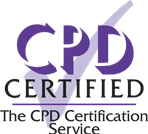
Understanding our bipolar disorder treatment programme results is important because it allows you to make an informed decision. We want to be transparent so that you can compare The Zamar Protocol ® (Precision guided high-dose thyroid hormones and rTMS protocol) programme to traditional treatments and make the right choice for you and your health. Read our recently published articles on our patented treatment here: https://www.mdpi.com/1861888 and https://www.mdpi.com/1832476.
Here at The London Psychiatry Centre we strive for excellence. As such, our papers published in the International Journal of Psychiatry Research and the Journal of Clinical Medicine followed Johns Hopkins research methodology recommendations on outcomes research. For chronic conditions such as bipolar disorders, outcome research is considered the best way to look at the impact of an intervention.
Our most recent published evidence-based paper is the first ever published study showing full recovery of severe mixed and depressive symptoms in all forms of bipolar disorders.
The paper shows that with The Zamar Protocol ® (Precision guided high-dose thyroid hormones and rTMS protocol) programme:
96.4%
Of patients had full remission for an average of 2 years
1.8
The average number of drugs patients need with our treatment programme
58%
of patients only needed 1 drug
1.29
Patients’ average disability rating* reduced from 7.4/10 to 1.29/10
33%
of patients had a disability rating* of 0 out of 10 after treatment
*The Sheehan Disability Scale (SDS) disability rating is used to determine how serious symptoms and/or side effects are and how much they impact your life.
Simply put, our programme gets better results than traditional treatment.
With traditional treatment, research shows there is:
- 41.8% recovery rate in bipolar type I and II only
- No remission in rapid cycling (Calabrese et al, Kemp et al)
- No remission in subthreshold bipolar (Ghaemi et al), the most common form of bipolar disorder (not a single study identified)
- No remission in subthreshold symptoms in bipolar type I and II (Garriga et al)
With The Zamar Protocol ® (Precision guided high-dose thyroid hormones and rTMS protocol) programme there is:
- 96.4% recovery rate in a study including all three types of bipolar disorder (treatment-resistant bipolar disorder I, II, subthreshold, rapid cycling, and depression with agitation and racing thoughts whether it alternates or not with periods of flat depression with lethargy)
- Currently the only evidence-based treatment for subthreshold bipolar disorder.
Not only is The Zamar Protocol ® (Precision guided high-dose thyroid hormones and rTMS protocol) treatment programme patented and exclusive to The London Psychiatry Centre, it is supported by peer-reviewed research papers in medical journals (Frontiers, The Journal of Clinical Medicine, International Journal of Psychiatry Research).
What Do These Treatment Results Mean?
“Statistical significance is the least interesting thing about the results. You should describe the results in terms of measures of magnitude – not just, does a treatment affect people, but how much does it affect them.”
– Gene V. Glass
We understand just how severely bipolar disorder affects sufferers and their quality of life, as well as the people around them.
Improved Quality Of Life
Our patients frequently describe our treatment programme results as ‘life changing’. Patients have reported a substantial improvement in quality of life, with 96.4% of patients experiencing full remission for a period of 2 years (2 years not because they relapsed but because the 2 year observation period ended). Drugs that are prescribed as part of the treatment programme are well tolerated for many years, offering a long-term solution.
Our treatment programme has been life changing for sufferers of bipolar disorder. Patients have recovered after years of unsuccessful treatment with traditional methods.
Lower Disability Rating
A World Health Organisation (WHO) study found that over a lifetime, the burden of disability in bipolar spectrum disorder is greater than all forms of cancer, epilepsy, and all known neurological diseases, including Alzheimers’s disease.
A disability rating is used to determine how much symptoms of a condition impact your life. It is a scale of 1-10, with 10 meaning that your life is severely affected by your illness, affecting your ability to maintain relationships, attend work, and perform self care tasks (like eating or showering).
Our paper showed that patients experienced a significantly reduced disability rating after treatment. On average, patients’ disability rating reduced from 7.4/10 to 1.29/10. In fact, after treatment, 33% of patients scored a 0 out of 10, meaning that their condition no longer impacted their ability to live their life in any way. This is hugely significant because it means that after treatment, patients experience no or very little impact on life from their condition.
Fewer Drugs and Side Effects
A major issue with traditional treatment is the fact that many drugs are used (80% of bipolar sufferers take on average 3.8 drugs) and are often not well tolerated, with numerous side effects. In contrast, as research on our protocol showed, our treatment programme is generally well tolerated with few, if any, side effects. In fact, just one patient showed minor reversible side effects.
A related issue is that an estimated 40% of those diagnosed with major depression (and as such, prescribed antidepressants) actually have subthreshold bipolar disorders – and are directly harmed by treatment with antidepressants. 16% have bipolar disorder I and II. Another study of 43,000 people found more than 7 in 10 of those with “pure major depression” have subthreshold bipolar disorder. These people are often classed as having treatment-resistant depression.
How Effective Is Our Treatment Programme?
How can the effectiveness of our programme be compared to other treatments? Here we compare the difference between our treatment programme and others.
How Does The Zamar Protocol ® (Precision guided high-dose thyroid hormones and rTMS protocol) Programme Compare To Traditional Treatment?
In short, it is superior.
Below you will find a very brief overview of the key differences between traditional treatment for bipolar and The Zamar Protocol ® (Precision guided high-dose thyroid hormones and rTMS protocol) patented treatment programme.
| Traditional treatment | vs. | Our treatment programme |
|---|---|---|
| 41.8% recovery rate in bipolar type I and II only.No remission in rapid cycling (Besag et al, Calabrese et al).
No remission in subthreshold bipolar (Gariga et al), the most common form of bipolar disorder, and subthreshold symptoms in bipolar type I and II (treatment-resistant bipolar disorder). |
96.4% recovery rate in treatment-resistant bipolar disorder I, II, subthreshold, rapid cycling, and depression with agitation and racing thoughts (whether it alternates or not with periods of flat depression with lethargy). | |
| 80% of bipolar patients take on average 3.8 drugs | Average of 1.8 drugs needed.
58% of patients only needed 1 drug |
|
| One size fits all | Precision medicine personalised to you | |
| Drugs usually not well tolerated | Drugs well tolerated for years | |
| Side effects that severely impact quality of life | Minimal side effects |
For a much more detailed breakdown on how our treatment programme compares to traditional treatment with Quetiapine and mood stabilisers, and the evidence to support this, click here.
Treatment for bipolar disorder with minimal if any side effects.
Yes, it is possible to live a life free from bipolar’s extreme constraints. If you would like more information about our bipolar disorder treatment programme or would like to speak to a member of our team about booking a consultation, please call us on 020 7580 4224 and we’ll be happy to help.


